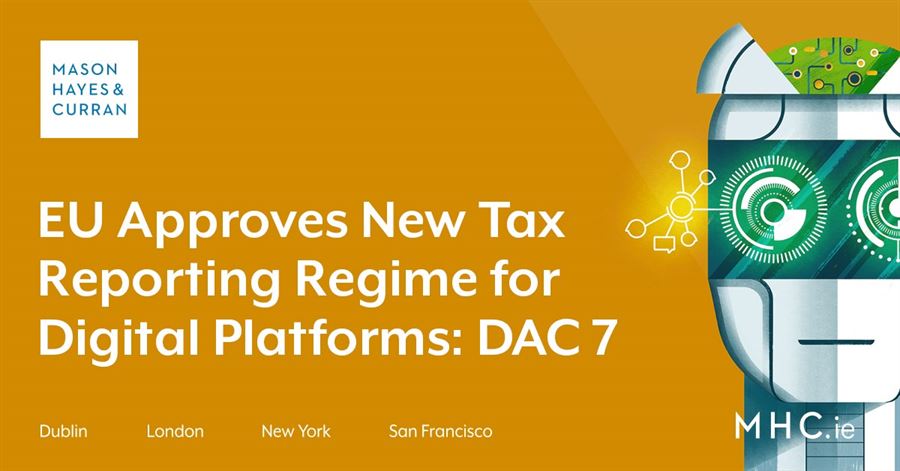
The EU Council approved a new tax reporting regime in March 2021 known as DAC 7 designed to enhance tax compliance in the digital economy and assist EU tax authorities identify situations where tax may be payable. Under DAC 7, digital platform operators will be required to collect and verify information on certain users and report this information annually to the tax authorities in their Member State. This information will then be shared among EU tax authorities.
Digital platforms
The new regime will apply to EU based and non-EU based digital platforms operators with the relevant nexus within the EU. This includes any software, eg websites, applications, and mobile applications that connects sellers with potential purchasers for the purpose of carrying out a “relevant activity”.
Certain software or platforms are excluded from DAC 7, such as:
- Payment processing platforms, and
- Platforms that enable users to list or advertise a relevant activity or those which redirect or transfer users to another platform
Relevant activities
Activities or transactions which will trigger a reporting requirement are:
- Rental of commercial or residential immovable property
- Provision of personal services eg a lift sharing service
- Sale of goods
- Rental of any mode of transport
Reportable sellers
The reporting obligations only apply in respect of “reportable sellers”. These include individuals or entities that carry out relevant activities which are tax residents in the EU or rent out property located in the EU.
Certain entities are excluded from DAC 7. For example, listed companies, government and state bodies and casual sellers, i.e. individuals or bodies with less than 30 sales on the digital platform and turnover/sales of less than €2,000 in a given year. High frequency property rentals exceeding certain thresholds, like hotel chains or tour operators, are also excluded.
Reporting obligation
Reporting digital platforms operators will be required to register for the purposes of DAC 7 in a Member State and collect and report annually, specific details on reportable sellers on their platform. These include the tax reference, VAT and business registration numbers of the reportable seller, consideration received, bank account details, number of relevant activities, and fees or taxes withheld or charged by the operator.
Enhanced compliance
The new regime will assist tax administration and tax authorities in the EU. It will centralise the reporting obligations of digital platform operators in one Member State and standardise those obligations across Member States. DAC 7 will also introduce new co-operation procedures between tax authorities, in relation to enquiries, audits etc.
Member States will apply penalties to ensure compliance with the new regime. In addition, importantly, where a seller repeatedly fails to provide the platform operator with the relevant information, the seller’s account may be closed on the platform until the information has been provided.
Timelines
Member States will be required to transpose DAC 7 into national legislation on or before 31 December 2022. The reporting obligations will apply from 1 January 2023 and first reports should be filed on or before 31 January 2024.
Next steps
Once implemented, DAC 7 will place a significant administrative burden on digital platforms. Reporting operators will need to consider the potential impact this may have on their business and customers.
As a first step, operators will want to assess and validate their existing processes and systems to determine whether they will be able to comply with the due diligence and information collection requirements of DAC 7. This may lead to potential system changes or upgrades. In addition, businesses may need to update their standard terms and conditions and consents.
For further information, please contact a member of our Tax or Privacy & Data Security Team.
The content of this article is provided for information purposes only and does not constitute legal or other advice.







